Job Ref: B04-04510
Professor Bowler is a lead developer of the CONQUEST large scale and linear scaling DFT code, and has worked extensively on understanding the atomic and electronic structure of defects and nanostructures on semiconductor and insulator surfaces, often in close collaboration with experiment. His research is centred on the twin goals of method development and using DFT modelling to interpret and predict experimental results. The London Centre for Nanotechnology (LCN) is an interdisciplinary enterprise between University College London, King’s College London and Imperial College London. The LCN has strong relationships with the broader nanotechnology and commercial communities, and is involved in much major collaboration. As the world’s only such facility to be located in the heart of a metropolis, the LCN has superb access to corporate, investment and industrial partners. It is at the forefront of training in nanotechn! ology, an d has a strong media presence aimed at educating the public and bringing transparency to this emerging science.
About the role
The postholder will pursue computational research into the structure of stacking faults, threading dislocations and inversion domains in GaN and related alloys, and the behaviour of alloying and dopant atoms at and near these defects. The research will be based on large scale density functional theory (DFT) calculations using the CONQUEST code, and will be carried out in the group of Prof. David Bowler, in close collaboration with experiments using transmission electron microscopy and atom probe tomography in the group of Prof. Rachel Oliver in Cambridge. The post is funded by the EPSRC under grant number EP/Y00423X/1 for 36 months.
Appointment at Grade 7 is dependent upon having been awarded a PhD; if this is not the case, initial appointment will be at research assistant Grade 6B £36,832-£38,466 including London Allowance with payment at Grade 7 being backdated to the date of final submission of the PhD thesis per annum including London Allowance
About you
Applicants should have or have submitted their thesis towards a higher degree qualification (PhD) or equivalent in Condensed Matter Physics, Materials Modelling or a closely related discipline (for instance, quantum chemistry). They should have experience of working collaboratively in a research environment, ideally in collaboration with experiment, and a mastery of DFT simulations and the use of high performance computing (HPC) platforms. This should be shown in part by a track record of publications in a relevant area of science.
What we offer
As well as the exciting opportunities this role presents, we also offer some great benefits,visit https://www.ucl.ac.uk/work-at-ucl/reward-and-benefits to find out more.
Our commitment to Equality, Diversity and Inclusion
As London’s Global University, we know diversity fosters creativity and innovation, and we want our community to represent the diversity of the world’s talent. We are committed to equality of opportunity, to being fair and inclusive, and to being a place where we all belong. We therefore particularly encourage applications from candidates who are likely to be underrepresented in UCL’s workforce. These include people from Black, Asian and ethnic minority backgrounds; disabled people; LGBTQI+ people; and for our Grade 9 and 10 roles, women. Our department holds an Athena SWAN Bronze award, in recognition of our long-term commitment and ‘beacon’ status in advancing gender equality.
https://www.jobs.ac.uk/job/DFB964/research-fellow-in-large-scale-dft-modelling-of-defects-in-gan
